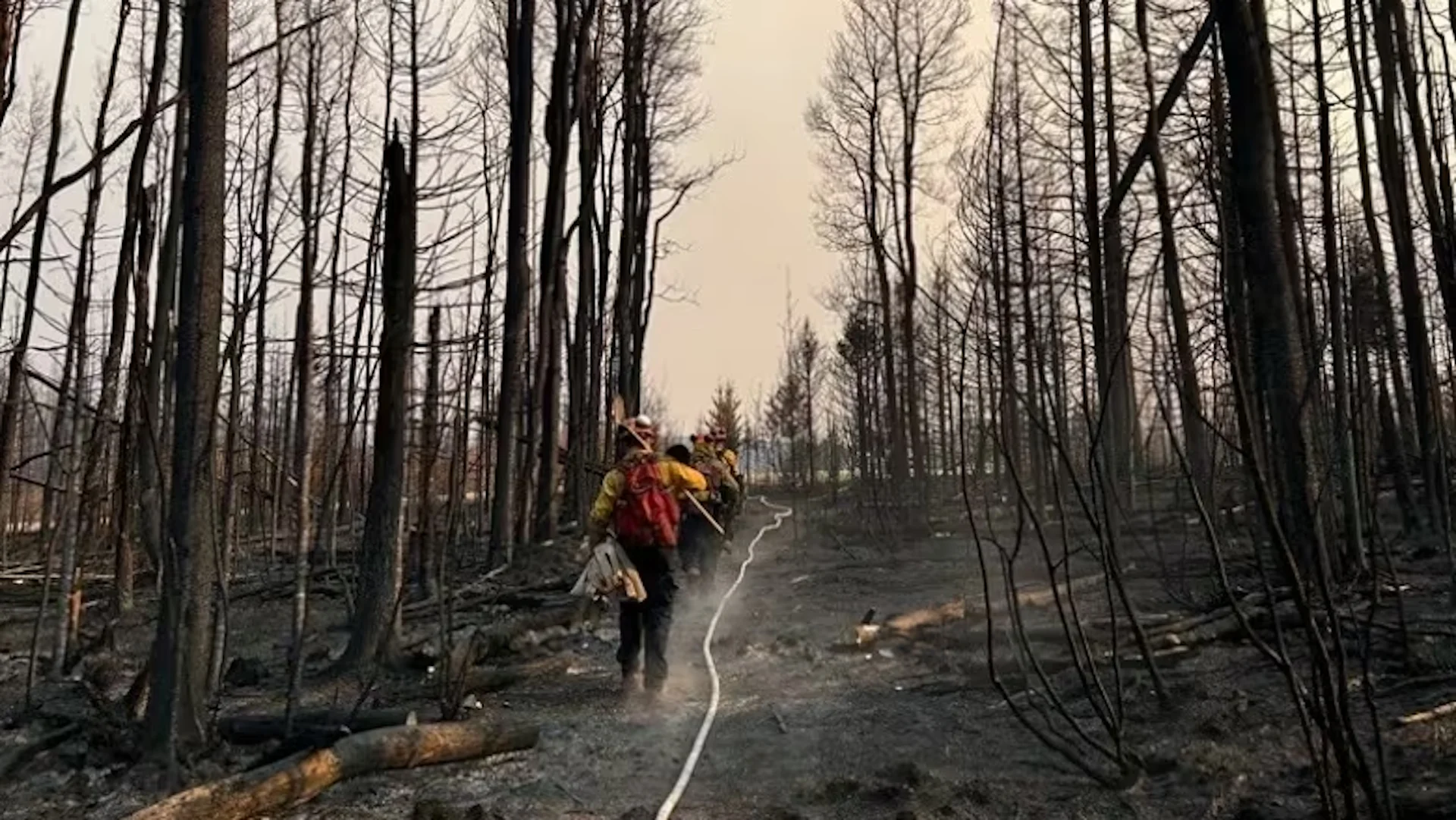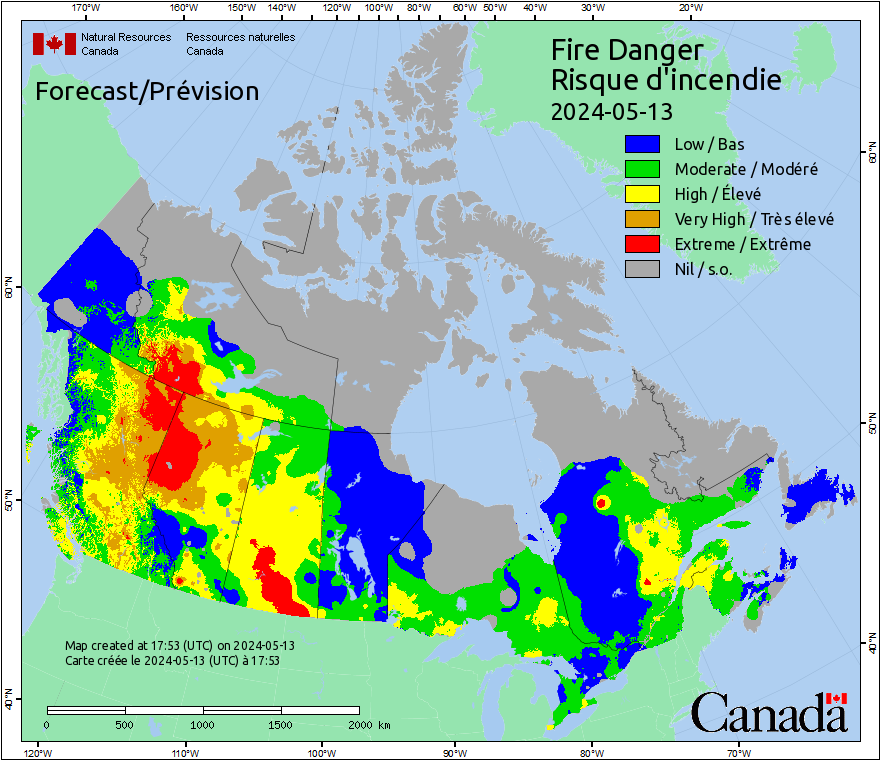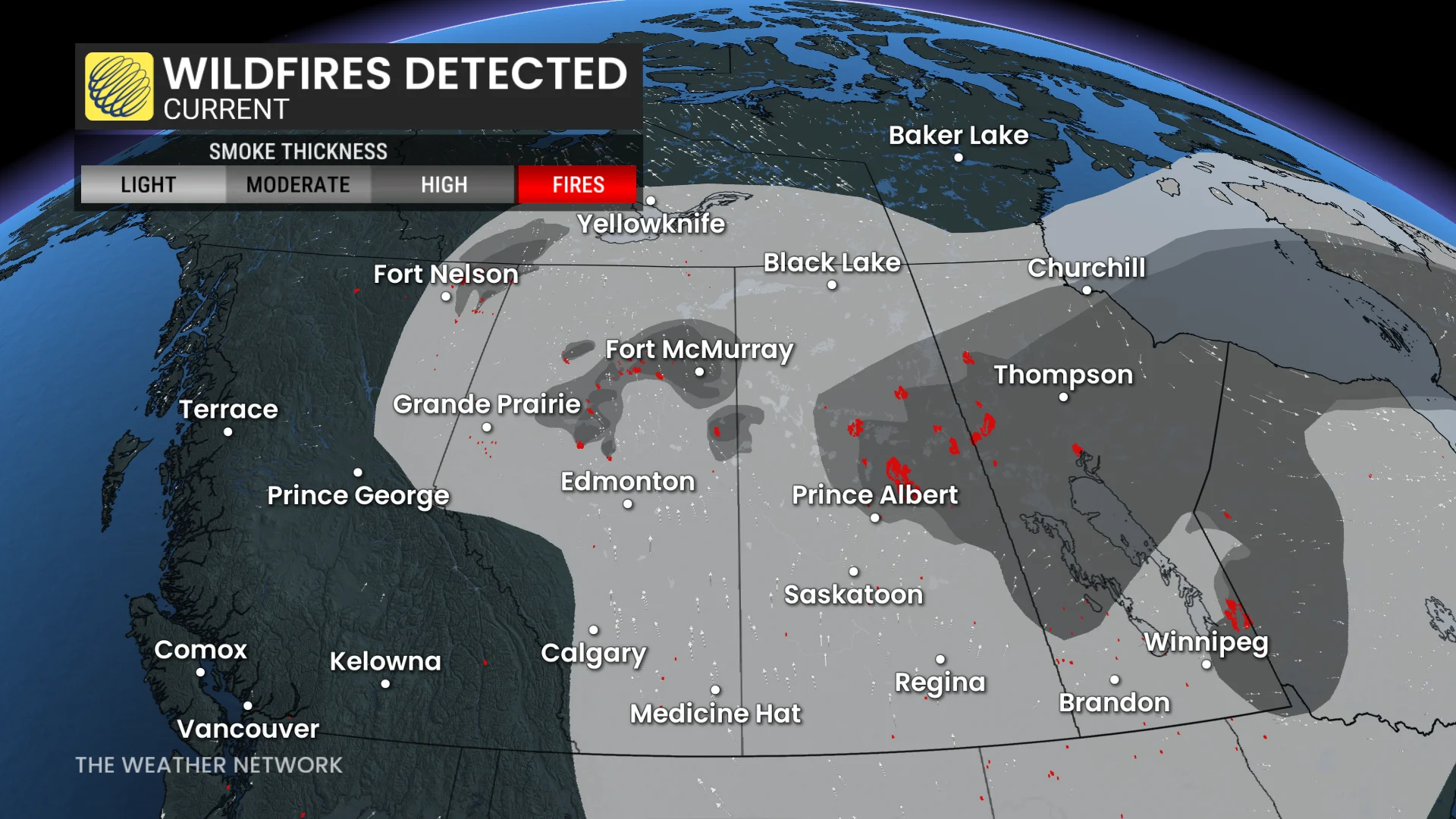
Hundreds ordered to evacuate overnight in northern Alberta as wildfires flare
Mandatory evacuation orders have been issued for communities in remote northern Alberta as the province braces for another day of potentially explosive wildfire activity.
Hundreds of people were ordered to leave their homes overnight as wildfires flared with sweltering heat and high winds, straining firefighting efforts across the province.
A complex of fires burning near Chipewyan Lake, about 130 kilometres west of Fort McMurray, has put a cluster of communities, including three First Nations, under threat.
The band of wildfires is burning across a region made up of vast expanses of boreal forest dotted with small lakes, thick swamps of muskeg, and few roads.
DON'T MISS: The Weather Network's wildfire hub

'Extreme behaviour'
As of 8 a.m. Thursday there were close to 50 fires burning across the province, 24 of which were classified as out of control
Derrick Forsythe, an information officer with Alberta Wildfire, said many of Alberta's out-of-control wildfires are concentrated in the evacuation zone, and parched conditions have made them unpredictable.
"We've seen some extreme behaviour," he said an interview Thursday.
"The dry conditions have made it challenging for us."
WATCH BELOW: Poor drought outlook in S. Alberta has some taking action
Forsythe said crews are bracing for some difficult days. Conditions are expected to grow increasingly volatile.
A red flag watch is in effect for most of Alberta, including the communities in the evacuation zone. The provincial weather warning means wildfire activity has grown dangerous and intense.
"We're going to see what we call crossover conditions, where the temperatures are going to exceed the relative humidity or the amount of moisture that's in the air," Forsythe said.
"When that happens, the fuels dry out. And so if a wildfire starts, it will spread quicker. It will ignite really easily and spread very quickly.
"The next couple of days are going to be, it's going to be a challenging environment for the firefighters."

Overnight evacuations
The string of overnight evacuation orders began with the community of Chipewyan Lake, home to about 90 people.
Around 1 a.m. Thursday, about 300 residents of the neighbouring hamlet of Red Earth Creek were ordered to leave their homes and told to head to the nearby community of Peace River.
RELATED: Multiple wildfires make for harrowing evacuation routes in Sask.
Within the hour, the evacuation zone expanded to a pair of nearby First Nation communities.
Mandatory evacuation orders were issued for Loon River First Nation around 2 a.m. Officials with Kee Tas Kee Now Tribal Council say a wildfire is burning 10 kilometres to the south of the community. The First Nation is home to about 550 people.
Peerless Trout First Nation also issued a mandatory evacuation order for the communities of Peerless Lake and Trout Lake, about 70 kilometres northeast of Red Earth Creek. The communities have a combined population of more than 800 people.
All evacuees were asked to leave immediately and told to gather enough supplies to last at least three days. Those without transportation were being bused to safety.
Swan Hills — a community of about 1,300 people — has been under evacuation since Monday. A wildfire burning north of the town has crossed a highway is within eight kilometres of the community. It continues to burn out of control and has burned 4,480 hectares.
The province has faced extreme heat and high winds, with little rain for days.
A cold front moving through the province Thursday will trigger a sudden shift in winds, with strong gusts from the south.
Severe thunderstorms and lightning strikes could spark new fires.
Officials are bracing for another wildfire season marked by extreme heat and persistent drought as wildfire activity ravages communities across the west, including Manitoba and Saskatchewan, where thousands have already faced evacuation orders.
This article, written by Wallis Snowdon, was originally published for CBC News on May 29, 2025.
Thumbnail image credit to Alberta Wildfire via CBC News.